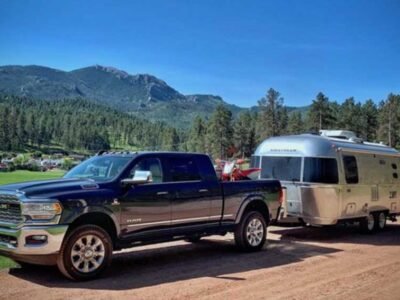Statistics depict that trucks transport almost 70% of all freight in the United States. This directs towards billions of dollars in shipped goods annually. This could be the most appropriate time to start your trucking business as there is an ongoing diver shortage, increased rates, and rising freight demands. The option is quite wide in this industry, as there are multiple companies to work with. You would also be paid well as most of the profit would be in your pocket if you own a company.
Despite the benefits of starting a trucking company, the challenges and hurdles faced while starting a company are worth pointing out. That’s why not many people are motivated to start a trucking business despite the potential benefits that they can possibly enjoy. This article will enable you to get through some of the most important steps that are required to start a trucking company.
Planning and preparation
Planning and preparation are required to start with your own trucking business. The most common approach is to initiate as an owner-operator, which means you should own trucks and should participate in the daily activities of your fleet. Several new owner-operators start out as drivers themselves.
If you do not have experience in this industry then you must secure the most appropriate type of commercial driving license. You can also decide to hire other truck drivers. You can structure your fleet the way you want, thorough planning is vital.
Select a target market
It would be wise to target the right market niche in order to avoid competition with large haulers, optimize your sales opportunities, and establish your brand name in the industry. A trucking niche would help you streamline your operational processes as well as resources. You need to ask yourself the following questions in order to select the niche for your trucking company.
- Which industries, companies, products, in my target shipping lanes and target locations do I find interesting?
- Who will be benefited the most from my trucking company’s services?
- Who are my ideal shippers and customers? And what are their needs, weaknesses, and strengths?
Identify your rates per mile
Another important thing in the trucking business is the consideration and identification of the right rate that you will be charging per mile. It should be reasonable enough to cover operational expenses and make a profit. Follow the steps mentioned below in order to determine your rate per mile.
- Choose your freight lane
- Proceed to a load board
- Notice the ten loads going the same direction
- Contact the brokers and get an idea about how much they are paying
- Compute the average
- Add 10-15% in order to estimate the price brokers bill shippers
- Repeat the steps for loads moving in the opposite direction
Creating a trucking business plan
A well-crafted business plan can make the process of starting a trucking company much smoother. It helps to specify your business processes such as pricing, operational activities, sales and marketing strategies, and many others. Questions that you should consider while creating a well-rounded business plan for your trucking business are mentioned below
- What are your plans for being an owner-operator?
- Will you focus on long-haul or short-haul trucking?
- Should you invest in buying trailers or get them through an operating lease?
- What are your financial forecasts for the next few years?
- To what extent do you plan to expand in the future?
- Have you planned to allot a budget for ancillary expenses?
Legal requirements for starting a trucking business
Along with the CDL( commercial driving license), owner-operators should also fulfill other requirements outlined by FMCSA. There are some permits that a trucking company would need which includes, US DoT number which tracks your regulatory compliance and safety records, The MC number which is also known as an operating authority, and if your cargo weighs more than 26,000 pounds you are required to register for a TX Dot Number as well.
Register your company in the (unified carrier registration) UCR using your MC and USDOT numbers in order to validate active insurance coverage. You should also consider the International Registration Plan (IRP) license plate which permits you to operate in all states in the US and most of the Canadian provinces.














Comments